As a "leading bird" in economic development, Mr. Ho Van Lam (44 years old, Gie Trieng ethnic group, Phuoc My commune, Phuoc Son, Quang Nam) has brought in hundreds of millions of dong in income each year for his family. Not only that, promoting the role of a prestigious person in the locality, he strives to do a good job of propaganda work, worthy of being the "extended arm" of the Party and State in mobilizing people to develop the economy, eliminate hunger and reduce poverty and push back social evils and bad customs. Land policy for ethnic minorities is a major and consistent policy of the Party and State. In recent years, Kon Tum province has promptly implemented land policies, creating conditions for ethnic minorities to stabilize their lives, develop production and escape poverty. In particular, the results of the Survey, collecting information on the socio-economic situation of 53 ethnic minorities in 2024 will be announced in the coming time, which will be the basis for Kon Tum province to propose many solutions to continue to effectively implement land policies for ethnic minorities. With the desire to bring the typical Arabica coffee flavor of Lac Duong district, Lam Dong province to many people, and at the same time create an environment to help local farmers sustainably develop this crop, for nearly 4 years now, Mr. Lieng Jrang Ha Hoang, Co Ho ethnic group, in Da Nghit village, Lat commune, Lac Duong district has devoted all his efforts to successfully building and developing the Chu Mui clean coffee brand. As a "leading bird" in economic development, Mr. Ho Van Lam (44 years old, Gie Trieng ethnic group, Phuoc My commune, Phuoc Son, Quang Nam) has brought in hundreds of millions of dong in income each year for his family. Not only that, promoting the role of a prestigious person in the locality, he strives to do a good job of propaganda, worthy of being the "extended arm" of the Party and the State in mobilizing people to rise up to do business, eliminate hunger and reduce poverty and push back social evils and bad customs. Propaganda, dissemination and education of law (PBGDPL) for ethnic minorities in mountainous areas has always been identified by all levels and sectors of Thanh Hoa province as an important task. Thereby, to raise awareness and sense of law compliance for people, contributing to effectively implementing the programs and policies of the Party and the State in life, including national target programs. Raising livestock and poultry under the house; not having hygienic toilets; ... are backward habits, affecting the living environment of a part of ethnic minorities. From the data of surveys, information collection on the socio-economic situation of 53 ethnic minorities and the summary reports of localities in ethnic minority and mountainous areas, it can be seen that these customs are gradually changing, contributing to improving the living environment. Before the Lunar New Year 2024, Quang Binh and Quang Tri provinces proactively requested to withdraw from the list of people requesting the Central Government to support rice for famine relief. I wonder if on the occasion of the Lunar New Year 2025, there will be more localities that will escape the situation of asking for rice support from the Government? From the implementation of a number of specific mechanisms and policies according to Resolution 111/2024/QH15, the progress of disbursement of capital for National Target Programs in the last months of 2024 has improved. However, the risk of having to transfer capital to 2025 is present when the disbursement of capital is still slow, especially for career capital. Summary news of Ethnic and Development Newspaper. This morning's news, December 7, has the following notable information: Bringing vocational education policies to mountainous workers. Yen Bai 's position on the Vietnam tourism map. The person who "lights the fire" of Then melodies. Along with other current news in ethnic minority and mountainous areas. Implementing the National Target Program on Sustainable Poverty Reduction for the period 2021 - 2030, Thanh Hoa province has issued a Decision on "Project to support housing for poor and near-poor households in poor districts of Thanh Hoa province". The project has contributed to helping poor households with housing difficulties "settle down and make a living" to create momentum to escape poverty sustainably. With the goal of "leaving no one behind", Ham Yen district (Tuyen Quang province) has effectively implemented poverty reduction and social security policies. Thanks to that, the poor have access to resources from policies, improving the quality of life both materially and spiritually. Cao Bang province has been effectively utilizing resources from the National Target Program 1719 to complete the goal of the Project "Reducing child marriage and consanguineous marriage in ethnic minority areas in the period 2015 - 2025". The activities actively implemented by the province in recent times have been changing the "thinking and working style" in ethnic minority areas. Implementing Resolution 21-NQ/TW of the 12th Central Executive Committee (Resolution 21-NQ/TW) issued on October 25, 2017 on population work in the new situation has correctly and accurately resolved Vietnam's outstanding population issues, creating a major turning point in population policy. On December 8, in Uong Bi city (Quang Ninh), the "YEN TU Heritage 2024" race took place. This is the first mass movement race held at the Yen Tu historical relic and scenic area, with 6,000 athletes from 54 provinces and cities participating.
Following the introduction of the Phuoc My commune cadres, we rode our motorbikes on the concrete roads from the commune center to visit Ho Van Lam’s house. When we arrived, his house was closed, and a neighbor said that he and his wife were herding cows in the field and would not return home until noon. Following the locals’ directions, we found Lam’s acacia plantation, about 3km away through the forest.
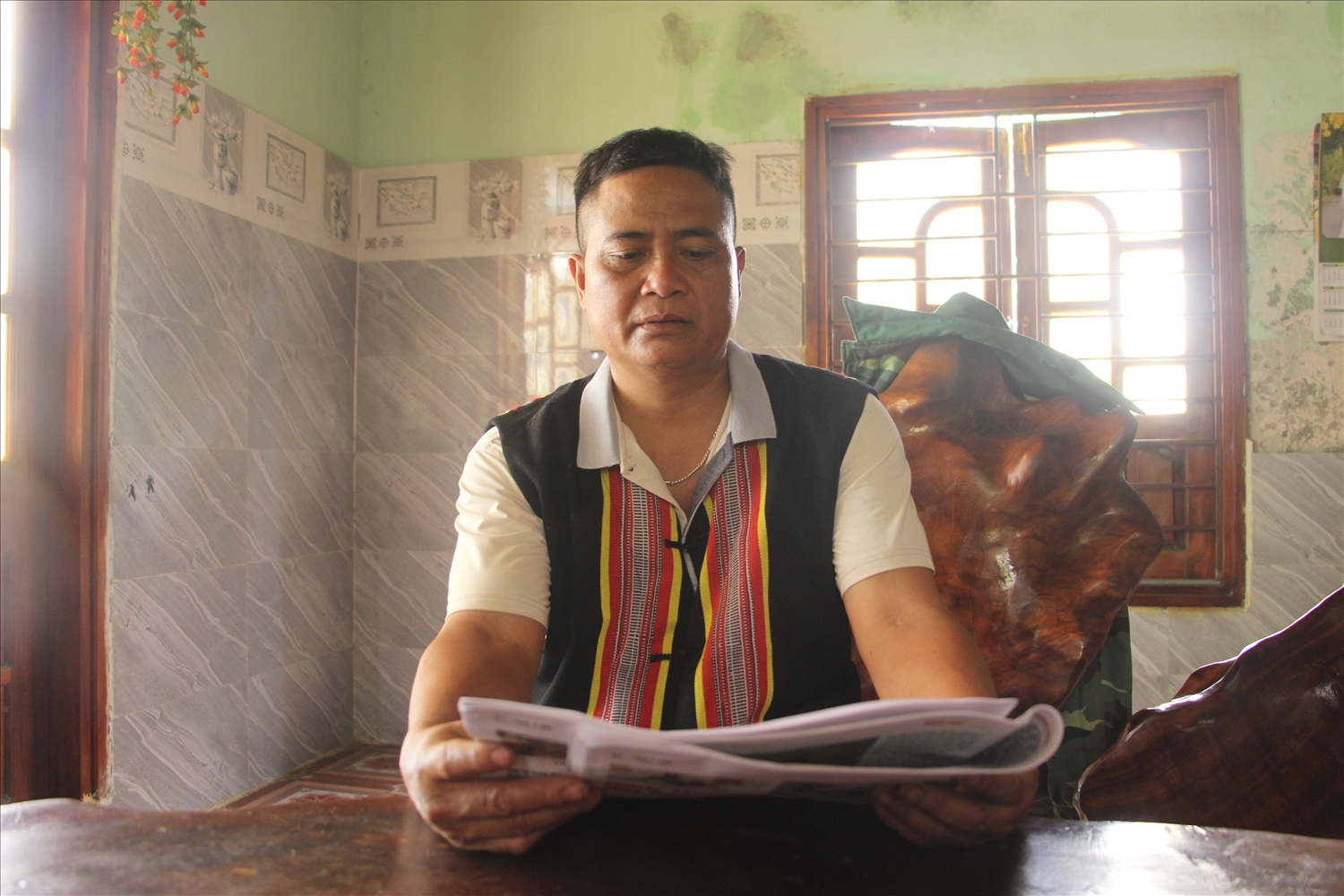
On an old Dream, Mr. Lam took us on a tour around the plantation to introduce his and his wife's economic model. His family's acacia plantation is about 7 hectares, surrounding a large hill, next to a clear stream leading to the foot of the hydroelectric plant.
“We have been growing the acacia plantation for ten years now, we have harvested it once, and now we are about to harvest the second crop. With more than 7 hectares of land, each crop we earn 400-500 million VND. We also grow dozens of Doi trees in the plantation, which also earn tens of millions of VND each year,” said Mr. Lam.
His car stopped at an empty space. He said he was going to check on the cows and give them some food because the cow was about to give birth. After a few familiar calls, the cows from many directions gathered at the prepared food trough. He pulled back the rope from the tree so that the cow could comfortably eat tapioca flour with a little salt.
Sharing about this, he said that currently there are about 15 cows and buffaloes. His family has just sold 2 big cows to get money to support the family and pay for their children's school fees. At peak times, his herd of buffaloes and cows reached 30, the largest in the village, worth more than 300 million VND.
In addition to acacia, doi and cattle, Mr. Lam and his wife also grow purple rice and raise dozens of chickens and ducks. “Purple rice has just been introduced for cultivation, its economic value is higher than normal rice. We raise chickens and ducks for food and sell them to earn money for daily living. We grow many types of crops to have a regular, alternating income, but if we rely on acacia and cattle, it will take a long time. Only by doing well economically can we escape poverty and hardship,” Mr. Lam shared.
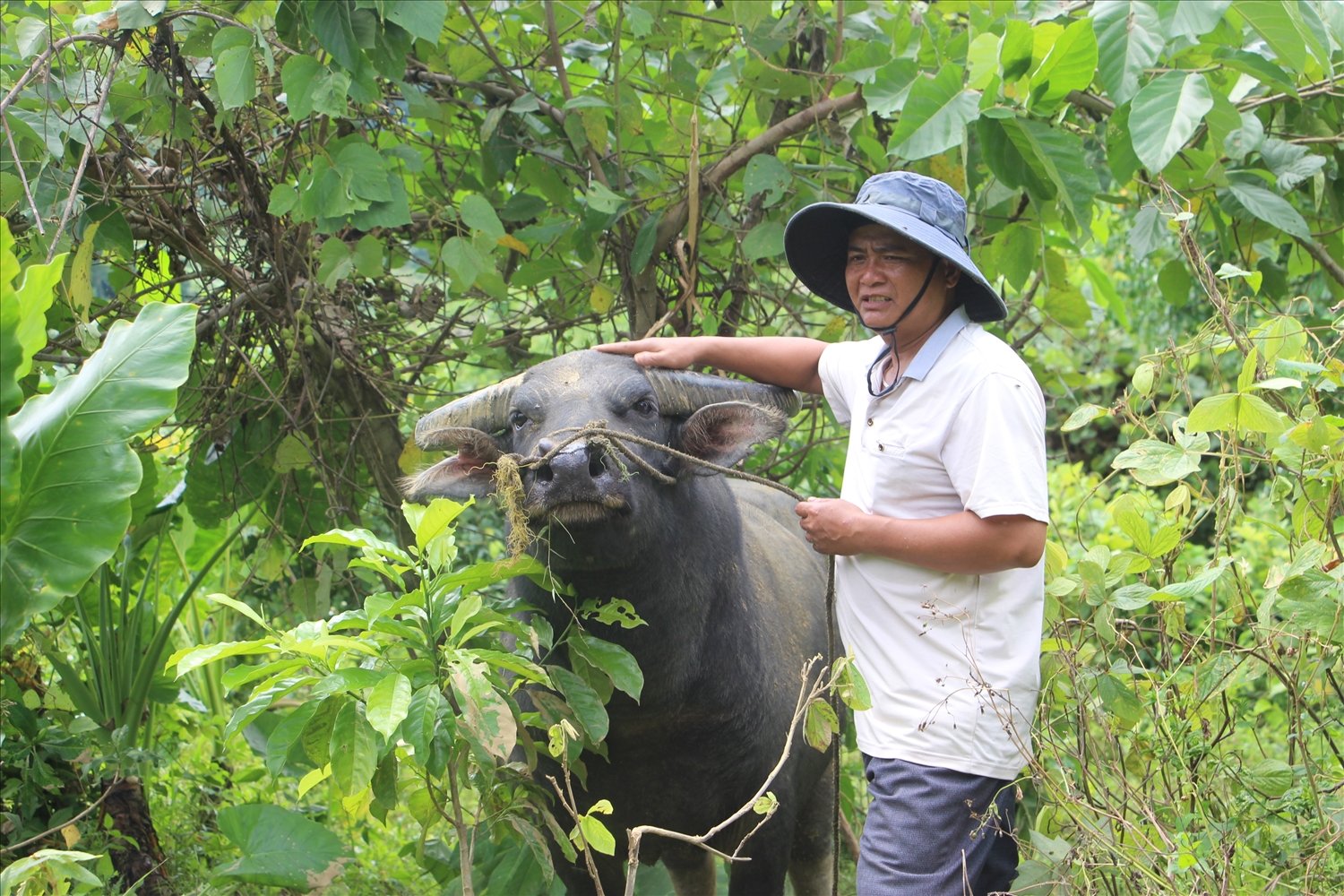
On the other side of the forest, Mr. Lam's wife is clearing grass and reclaiming the remaining land. After bringing food to the cows and visiting the rows of do trees laden with fruit, Mr. Lam is responsible for bringing his wife lunch whenever she does not come home at noon. According to Mr. Lam, the family's and other villagers' farmland was cleared by a company to build a hydroelectric plant, but has not been used for a long time, so the villagers take advantage of planting acacia trees to earn more income.
Currently, he and his wife are continuing to expand the area of planting dổi trees, and experimenting with growing fruit trees such as oranges, grapefruits, and lemons. Not only is he good at production, Mr. Lam also helps many local households to progress and improve their lives. Previously, people mainly lived by growing rice and acacia. Promoting his role, Mr. Lam has shared his experiences and encouraged people to change crops.
Not only good at economics, Mr. Lam is also the core in propagating to people to well implement the policies of the Party and State, especially the efforts to improve business and reduce poverty.
According to Mr. Lam, in the past, people relied on subsidies and did not work to improve their family's economy. He and the village authorities regularly propagated and encouraged people to boldly borrow capital to do business.
Not only that, with the people's suggestions for support for seedlings and livestock, he received and reported to his superiors in village meetings, thanks to which, the people's suggestions quickly reached all levels. Promoting from the study tours to learn good production models organized by the district's Ethnic Affairs Office, he conveyed them to the people through which they could develop the economy together.
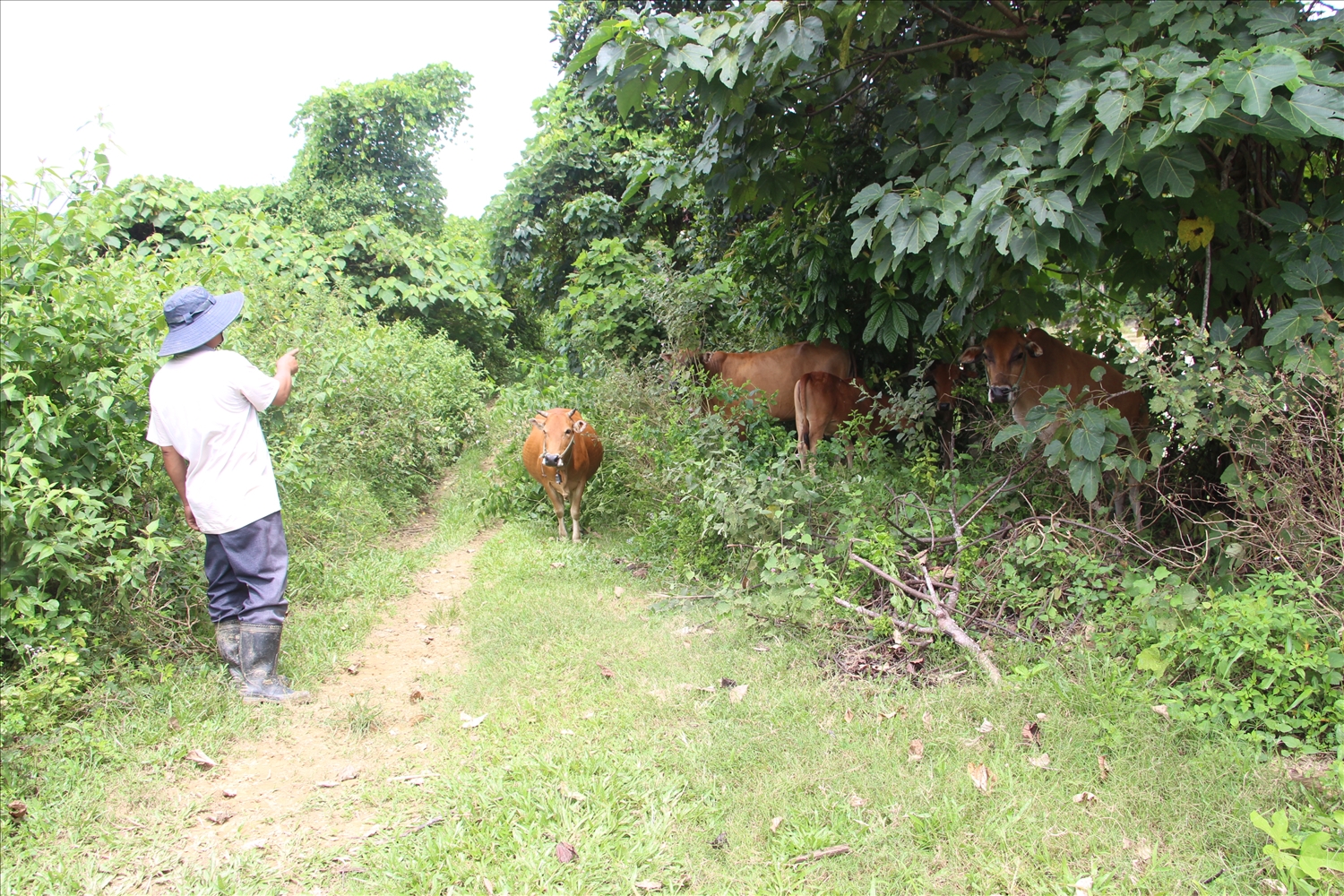
In the locality, Mr. Lam is considered a "good" mediator of the village. Over the years, he and local officials have participated in hundreds of mediation cases, many of which were successful. "In the locality, there are often conflicts over land, cattle eating other families' rice, and family conflicts. As a prestigious person, I have promptly grasped the situation, worked with the government to mediate, bring about a common voice, and thereby eliminate conflicts," Mr. Lam shared.
According to Mr. Lam, for land conflicts in the family, he often meets and encourages family members to first reconcile with love. If the matter is not resolved, the village will then mediate. “Most of the time, after reconciliation, people sympathize and forgive each other. If not, they follow the village rules, for example, if a family has buffaloes and cows eating crops from another family, they must pay 500,000 VND in compensation,” he said.
Regarding some customs that are no longer suitable for today's life, Mr. Lam, along with the local prestigious people, also stood up to propagate and abolish some of these customs. "Previously, people often stabbed buffaloes to make offerings to cure diseases, which was both costly and ineffective. We stood up to propagate and mobilize people to take sick people to the hospital for treatment by doctors, and not to believe in superstitions," said Mr. Lam.
Mr. Nguyen Van Tuong, an official of the Ethnic Affairs Department of Phuoc Son district, said: The prestigious person Ho Van Lam is one of the typical examples of economic development in the locality. In addition, he also does a good job of propaganda and mobilizing people to develop the economy. In the coming time, we hope that the prestigious people in the district in general, and Mr. Ho Van Lam, will continue to promote their roles and responsibilities, contributing to making the village and hamlet better and better.


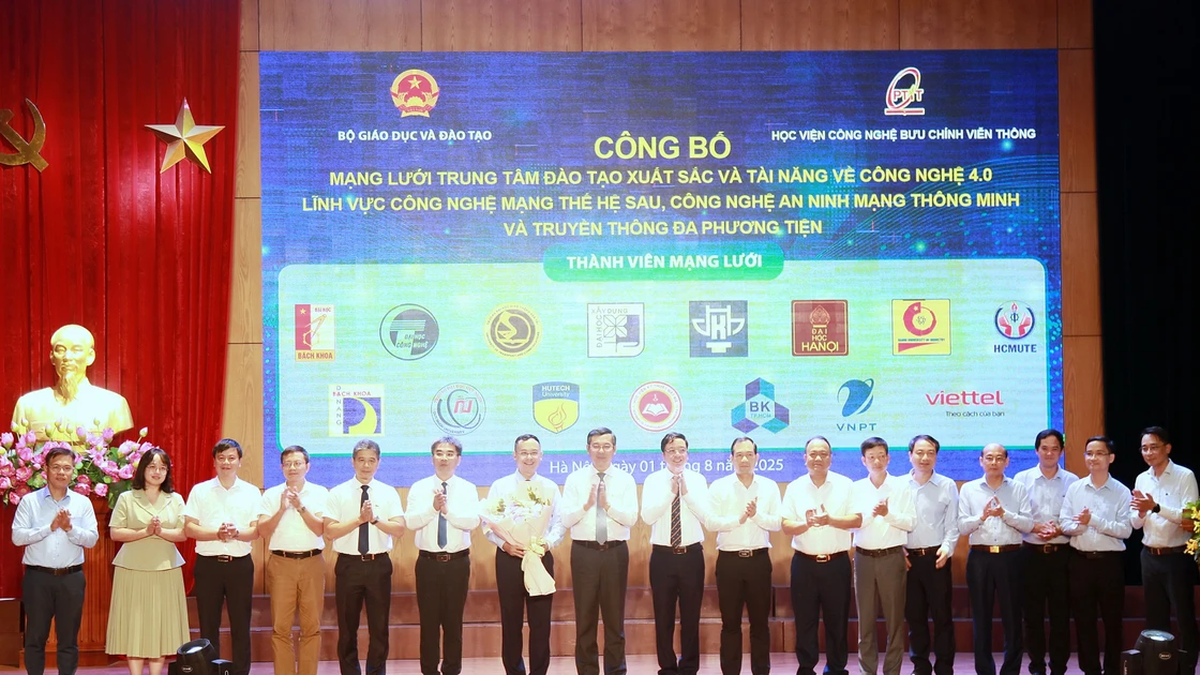
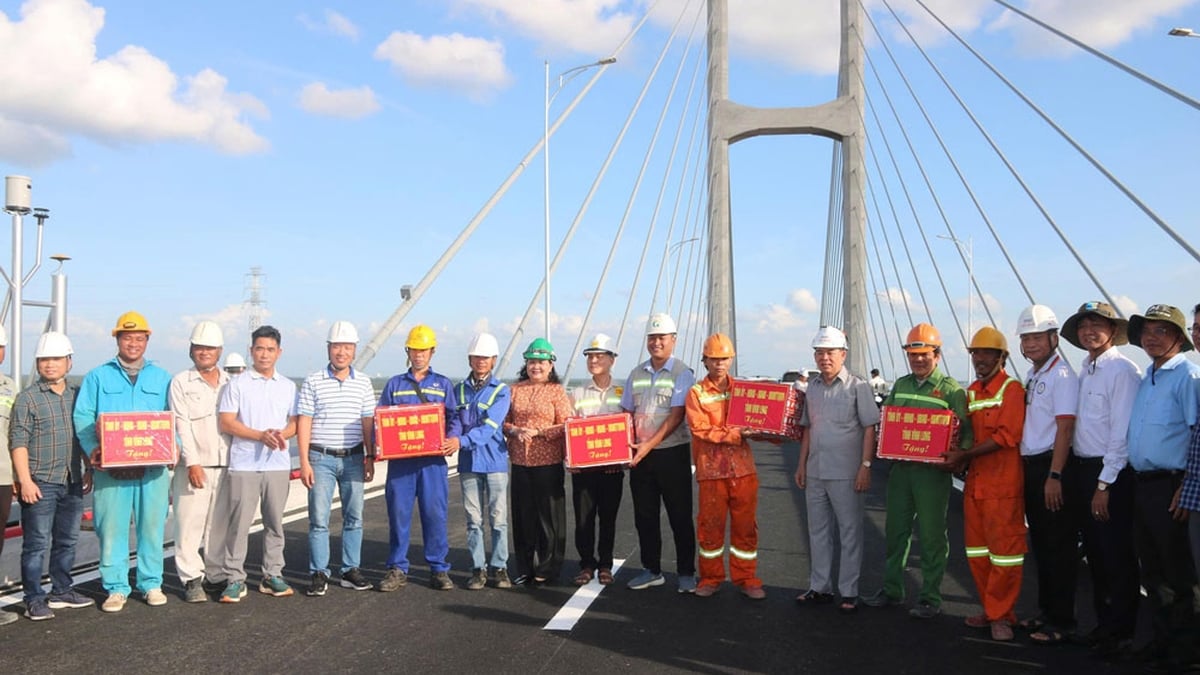


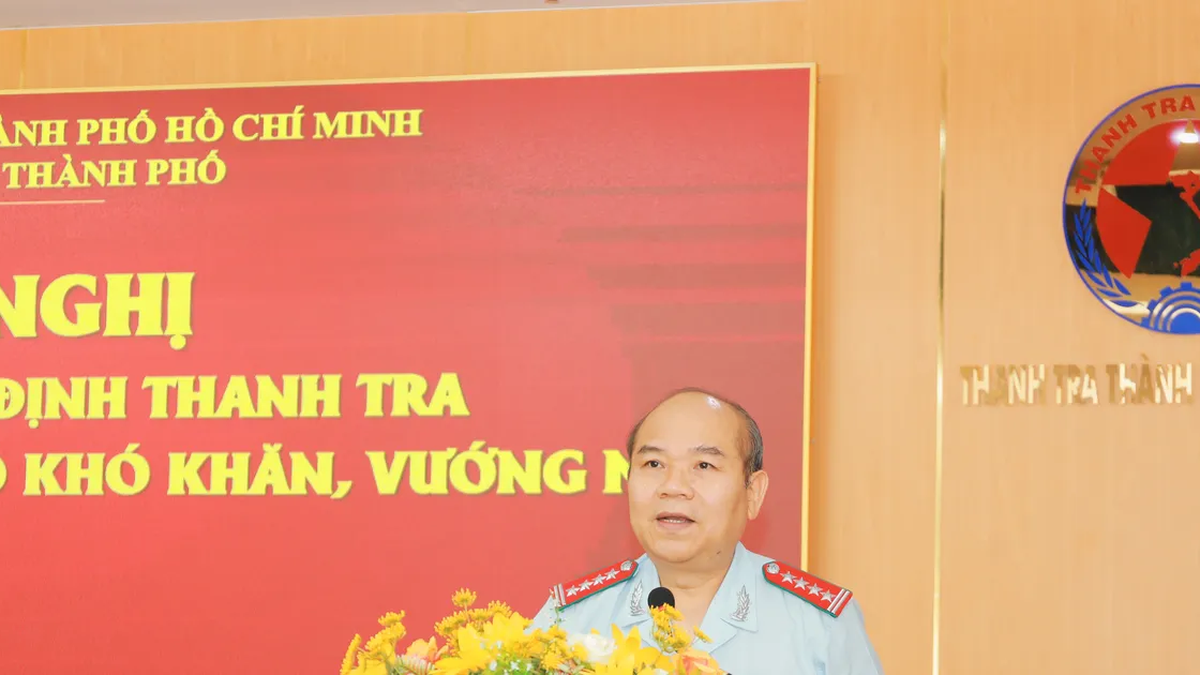
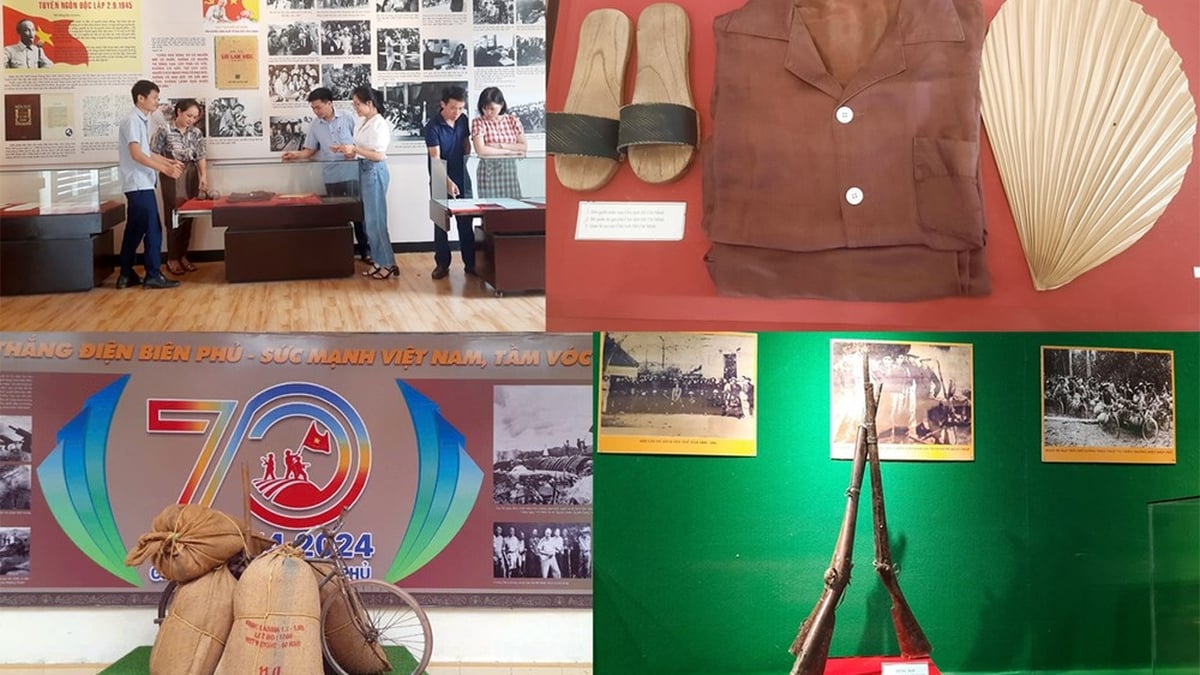
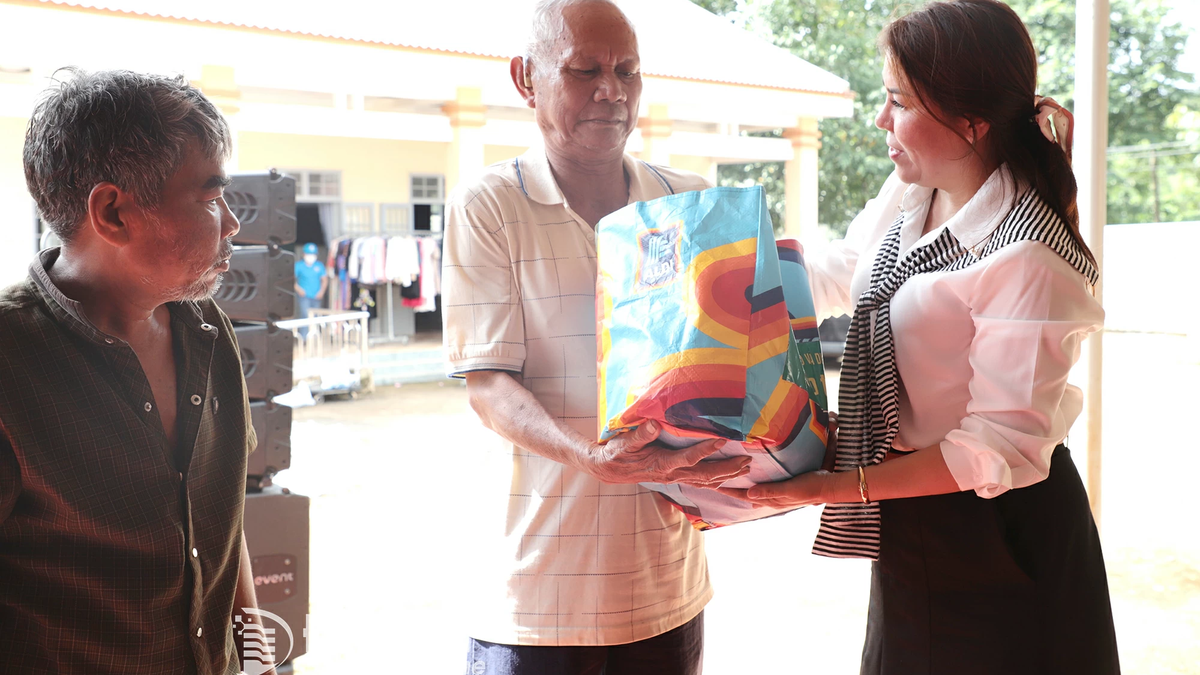
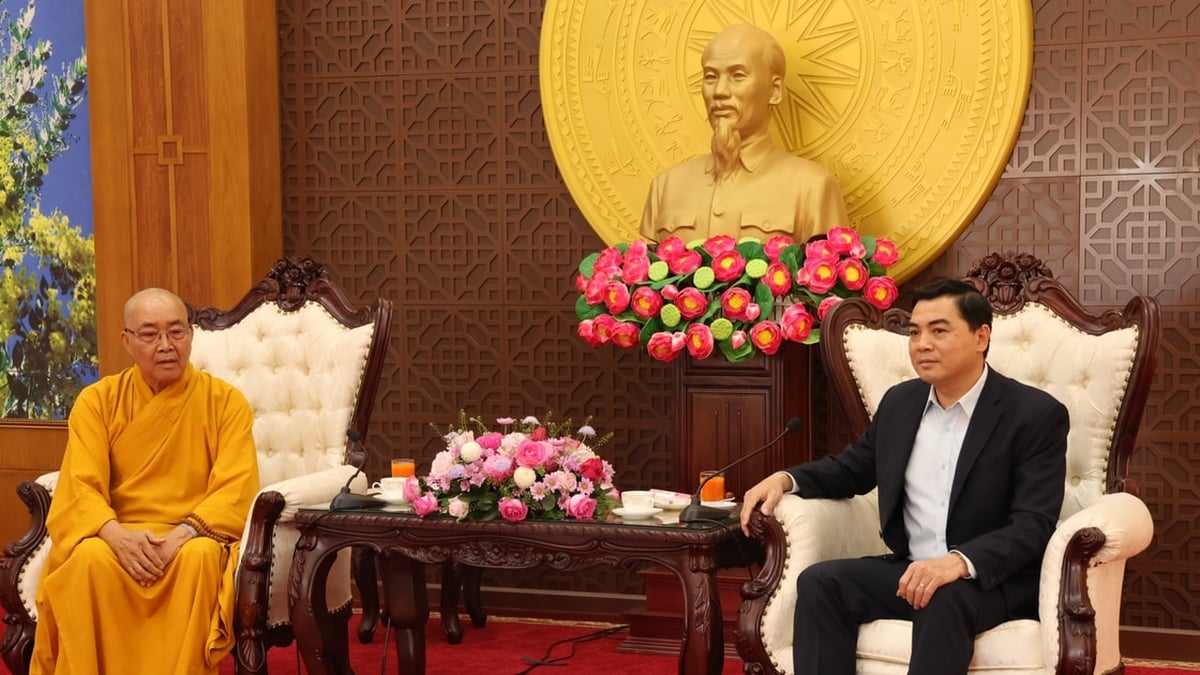
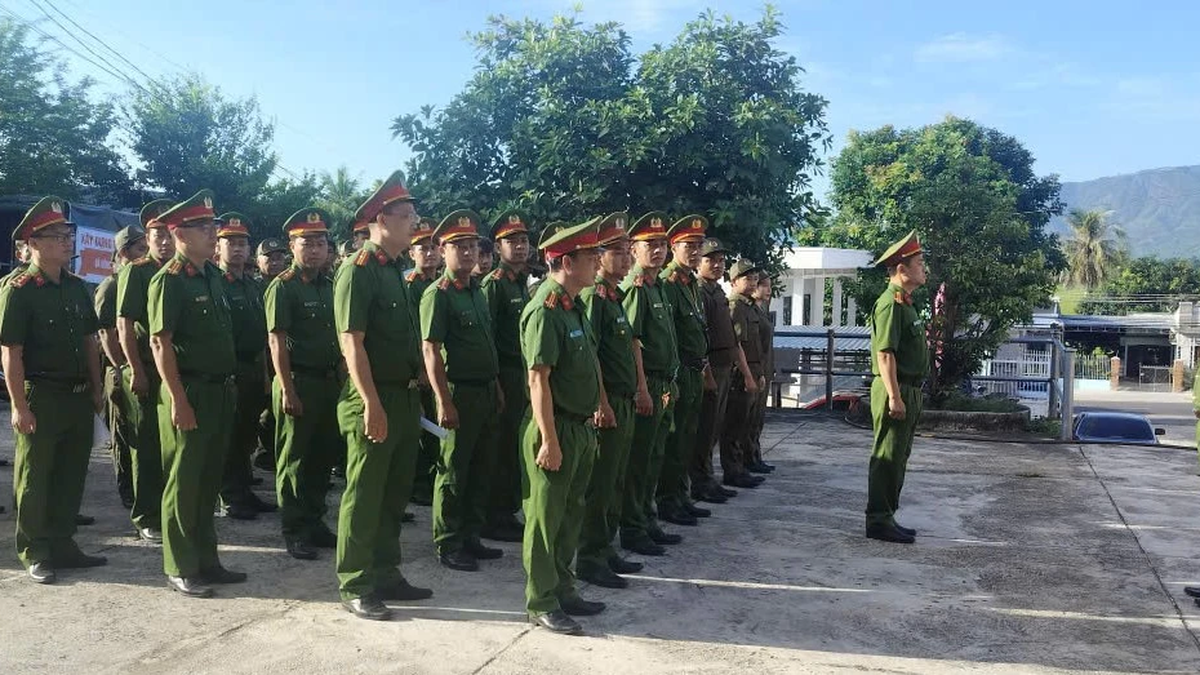
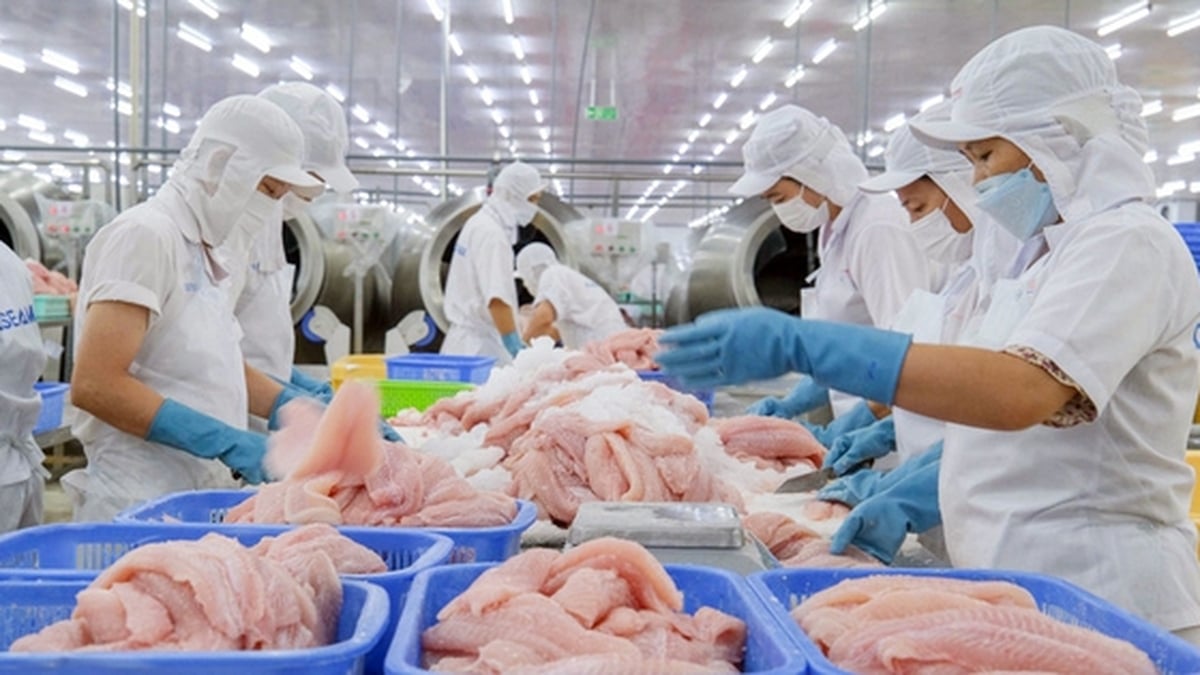




























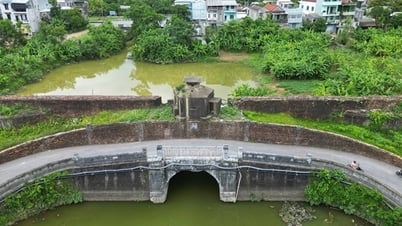












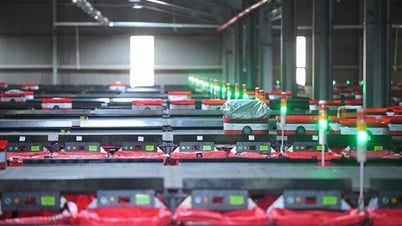

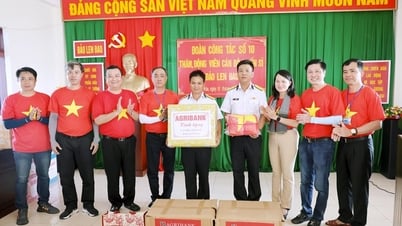

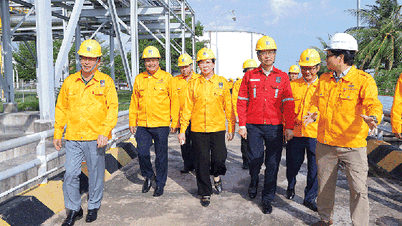





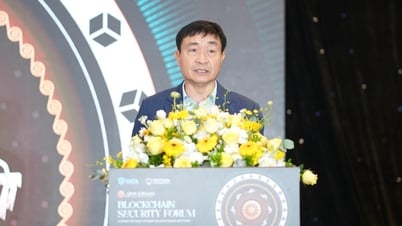
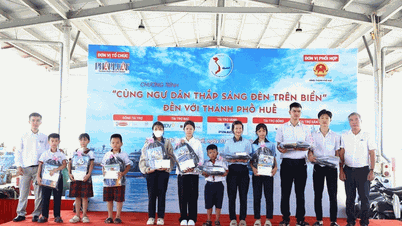

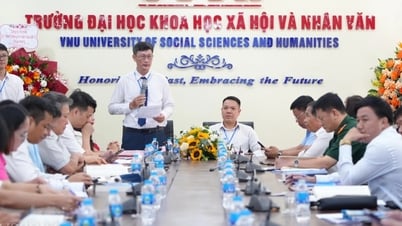




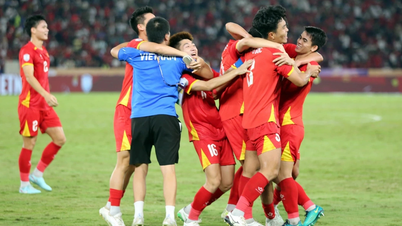
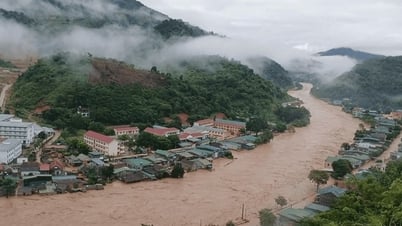



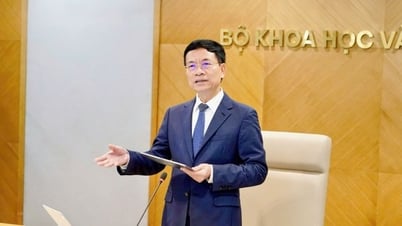

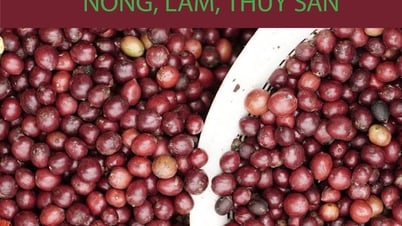
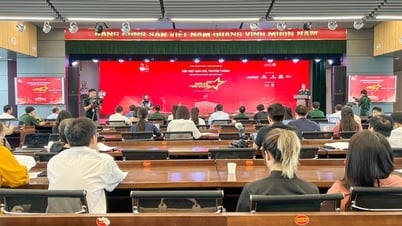
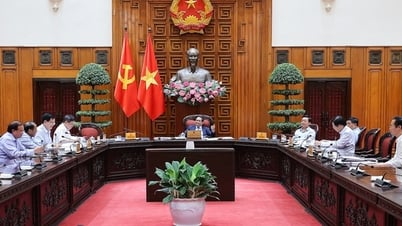





















Comment (0)